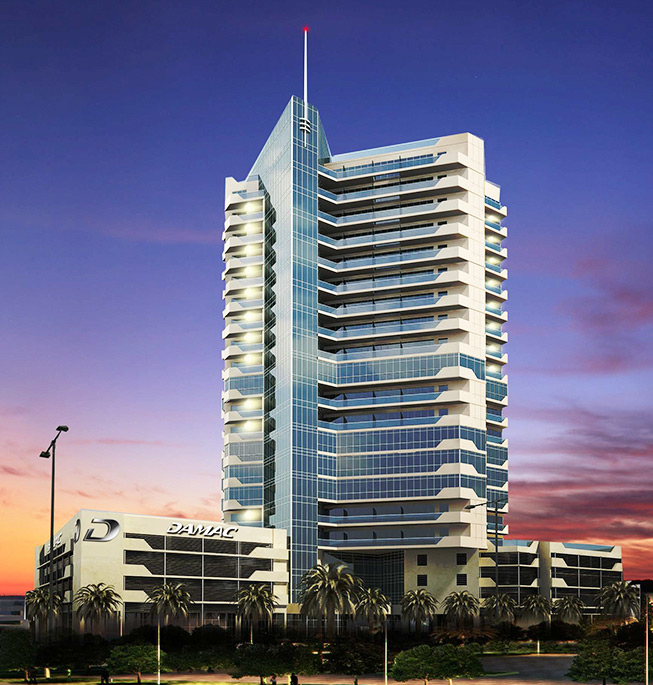The real estate market in Doha has become a focal point for investors and property seekers within Qatar and across the Gulf Cooperation Council (GCC). While cities like Dubai, Riyadh, and Kuwait City remain prominent in the real estate landscape, Doha offers distinct advantages and challenges. In this article, we’ll explore how Doha’s real estate market compares to other major GCC cities regarding affordability, investment opportunities, regulations, and prospects.
1. Affordability and Property Prices
When comparing property prices across GCC cities, Doha offers relatively competitive rates. For example:
Doha: Luxury apartments for sale in Doha areas like The Pearl can range from QAR 13,000-15,000 per square meter, while more affordable locations like Al Aziziyah have prices starting at QAR 8,000 per square meter.
Dubai: Known for its high-end market, Dubai’s property prices are generally higher, with prime locations such as Downtown Dubai commanding AED 20,000 (QAR 19,800) per square meter.
Compared to Dubai, Doha’s real estate market offers better value for money, especially for expatriates seeking medium-sized apartments. This affordability attracts investors looking for properties with steady long-term rental yields.
2. Rental Yields and ROI
Rental yields and return on investment (ROI) are crucial for investors.
Doha: Average rental yields in Doha hover between 5-6% in key areas like Lusail and The Pearl, driven by steady demand from professionals and expatriates.
Dubai: Dubai’s prime locations offer yields of around 6-7%, making it a highly attractive market, though fluctuating rental rates can impact stability.
Riyadh and Jeddah: Rental yields in Saudi Arabia’s major cities are lower, often averaging 4-5%, as the market is still developing post-Vision 2030 initiatives.
Doha presents moderate but reliable rental returns. While it may not match Dubai’s high ROI in prime areas, it compensates with lower risks and a more stable market environment.
3. Regulatory Environment and Ownership Laws
Regulations play a significant role in determining market attractiveness for both foreign and local investors.
Doha: In recent years, Qatar has introduced laws to encourage foreign investment, such as granting permanent residency to buyers of properties worth QAR 3.65 million or more. Additionally, freehold ownership is allowed in designated areas like The Pearl, Lusail, and West Bay Lagoon.
Dubai: Dubai offers extensive freehold zones and relaxed property laws, making it one of the most foreigner-friendly markets in the GCC.
Saudi Arabia: Saudi Arabia is gradually opening up to foreign buyers, although strict rules remain for certain regions.
Kuwait and Bahrain: These markets have limited options for expatriates to purchase properties, which restricts foreign investment.
While Doha’s regulations are not as liberal as Dubai’s, recent legal reforms are steadily improving investor confidence, particularly for high-net-worth individuals and expatriates looking for permanent residence.
4. Market Stability and Growth Prospects
Doha’s real estate market is characterized by stability, in part due to government-backed infrastructure projects.
Doha: The market has grown steadily, with developments linked to the FIFA World Cup 2022 boosting infrastructure and tourism. Projects like Lusail City and Msheireb Downtown continue to shape future growth. However, the market remains less volatile than Dubai’s, where prices can fluctuate significantly.
Dubai: Dubai’s market is known for rapid growth and downturn cycles, influenced by speculative buying and global economic trends.
Riyadh: Saudi Arabia’s Vision 2030 initiative has spurred urban expansion, making Riyadh a rapidly growing market with considerable long-term potential.
Bahrain and Oman: These markets are smaller and show moderate growth, offering fewer large-scale investment opportunities compared to Doha or Dubai.
For long-term investors seeking steady appreciation, Doha offers a more stable market than Dubai, with fewer price swings and strong government backing for key projects.
5. Lifestyle and Expat Demand
The lifestyle offered by each GCC city significantly influences real estate demand.
Doha: Known for its mix of modern amenities and cultural richness, Doha attracts a diverse expatriate population. Areas like The Pearl and West Bay offer a luxurious lifestyle, while Lusail appeals to younger professionals.
Dubai: Dubai is famous for its vibrant lifestyle, which draws expatriates from around the globe. The city’s entertainment options, world-class shopping, and nightlife are unrivaled.
Riyadh: As a more traditional city, Riyadh appeals primarily to professionals working in the public sector and industries related to Saudi Arabia’s economic transformation.
Kuwait and Bahrain: These cities have smaller expatriate populations and are known for quieter lifestyles, which limits demand for high-end properties.
Doha provides a balanced lifestyle that appeals to both families and working professionals, making it a more family-friendly destination compared to Dubai’s fast-paced environment.
6. Infrastructure and Development Projects
Qatar’s investment in infrastructure has been a key driver of real estate growth.
Doha: Developments such as Lusail City, Hamad International Airport, and new metro lines have transformed the city’s connectivity and appeal.
Dubai: Dubai’s real estate market is heavily driven by tourism, with ongoing projects like Dubai Creek Harbour enhancing the city’s investment prospects.
Riyadh: Saudi Arabia is investing heavily in smart city initiatives and mega-projects like NEOM, which will reshape the real estate landscape.
Bahrain and Oman: These markets focus on smaller-scale infrastructure improvements, offering limited opportunities for large-scale real estate development.
Qatar’s strategic projects, supported by long-term economic planning, provide a solid foundation for sustained real estate growth, particularly in new areas like Lusail.
Conclusion
In summary, Doha’s real estate market holds its own when compared to other GCC cities. While Dubai remains the leader in terms of international appeal and ROI, Doha offers a stable, affordable, and increasingly attractive market for both residents and investors. The introduction of foreign ownership laws, coupled with continuous infrastructure development, makes Doha a promising destination for those seeking long-term returns with fewer market risks.
As Qatar continues to diversify its economy, the real estate sector in Doha is expected to grow steadily, providing lucrative opportunities, especially for buyers looking for stable rental yields and high-quality properties in a family-friendly environment.

